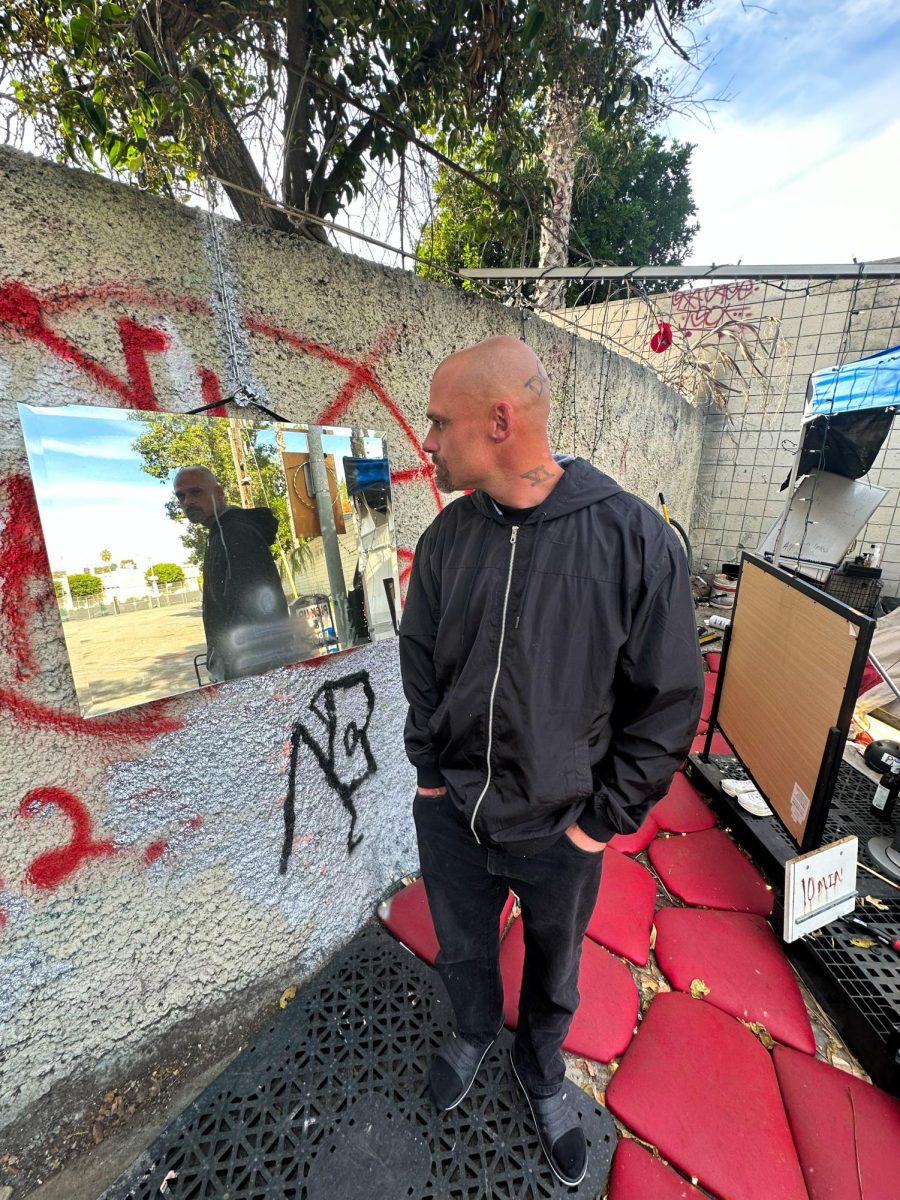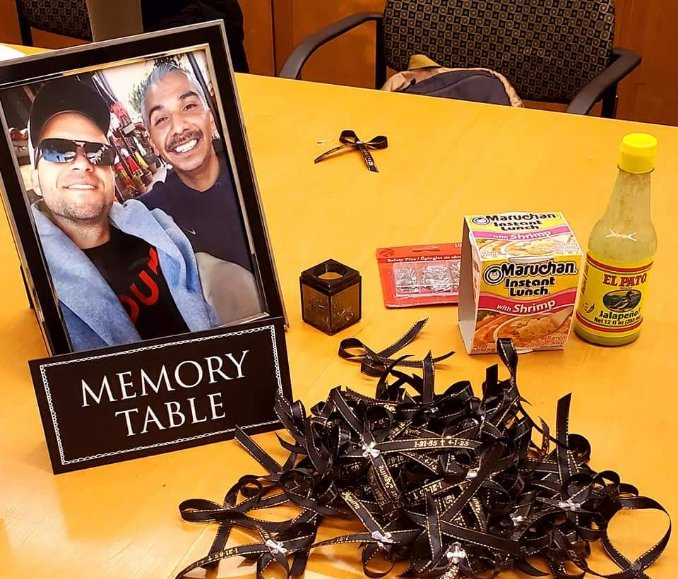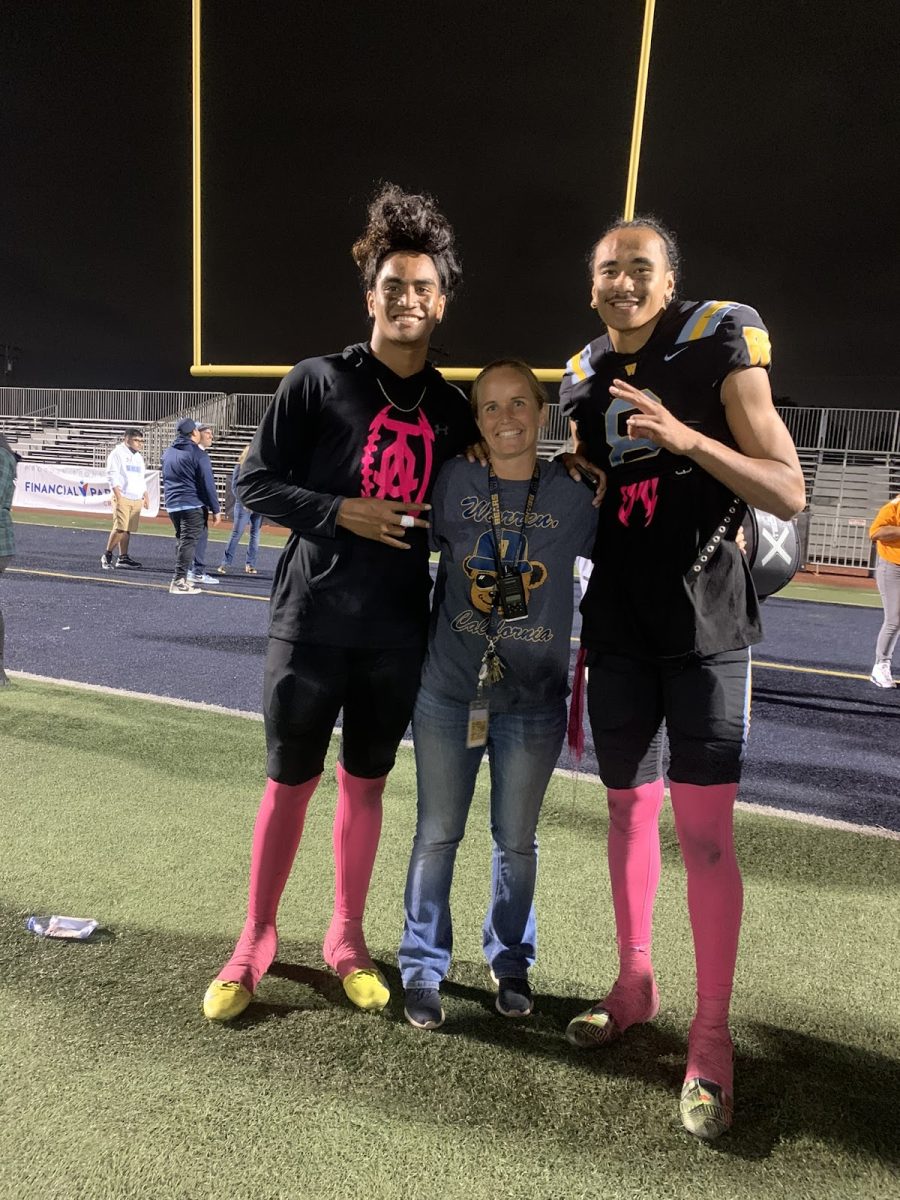On a recent afternoon, 43-year-old Sam Groft pulled out of his red and beige tent red wine he received for the holidays.
It’s something small that many Los Angelenos take for granted.
A full bottle of wine. On the streets, it’s a prize. To be savored. A small joy to break the doldrum of daily life.
Groft and so many unhoused people in Los Angeles find themselves on the streets because of a lack of mental health awareness and help for many years, leading to difficulties holding down a job and apartment. And the soaring cost of housing doesn’t help.
A recent UT Community News survey of 14 unhoused individuals found:
- Most lost their housing after problems with mental health, addiction or difficulty finding affordable housing.
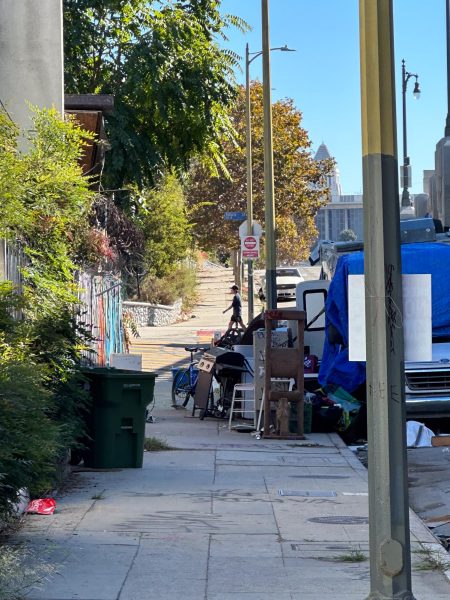
Marcella’s RV accomodations. She said her boyfriend, Sergio, was shot and killed in the alley behind her RV in September. Photo taken by Tristen Longwell. - All but one, 13, said they still use drugs and/or alcohol as an escape or to numb them from past trauma.
- Half, seven of the 14, said they use methamphetamine, which is highly addictive and has become more widely available on the streets of L.A.. Alcohol was reported as the second more widely used substance.
- Ten reported they’re originally from Greater Los Angeles.
- Nine reported that they had been physically assaulted while living on the streets.
- Six reported that they were in contact with at least one family member. Multiple individuals said they chose to live on the streets as a lifestyle choice.
The smaller-scale UT Community News survey mirrors some findings from a June 2023 report, the California Statewide Study of People Experiencing Homelessness.
For instance, nine out of ten people reported losing their last housing in California and 75% said they lived in the same county as their last housing, according to the report, the largest study of homelessness since the mid-1990s.
It surveyed 3,200 people experiencing homelessness and includes information from 365 people who participated in in-depth interviews and also found that 60% have a chronic illness, 50% reported symptoms of serious depression and/or anxiety, 82% reported experiencing a serious mental health condition at one point in their life and 64% (of those who reported using substances, regularly) said they started using prior to becoming unhoused.
Limited housing options
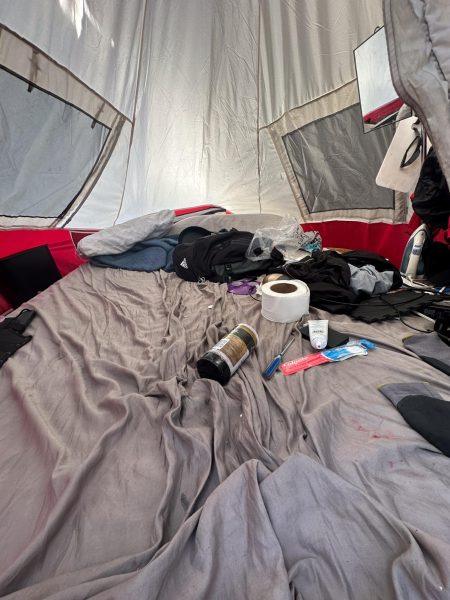
When Groft was 23, he paid $825 a month for a two-bedroom in L.A.. That was the last time he lived in an apartment.
After graduating from a program through California’s mental health courts, a few years ago, he was offered a shared room for $1210 a month.
That seemed outrageous to him and he also declined because he did not want to share his space with a “schizophrenic guy.”
Costs have only continued to rise. The average monthly cost of a two-bedroom apartment in L.A. has more than doubled to $2,222 in 2023 from $967 about 20 years ago, according to the Los Angeles Almanac.
Unhoused resident Victor Ramos, who is originally from Echo Park, said he does not have his own tent and instead wanders.
On Nov. 26 on Custer Ave., Ramos said he lived in an abandoned warehouse for eleven months.
That was until earlier this year when he said police officers forcibly removed him from the warehouse for trespassing. Since then, for about nine months, he has been on the streets.
He said he sometimes goes up to two days without eating and that has lost about 107 pounds from that and all the biking he does to get from place to place.
Growing up with an alcoholic father, he and his brothers had to “fend” for themselves as children, moving back and forth from California to Mexico. He was responsible for taking care of his niece while his brother was incarcerated. She became like a daughter to him.
His brother was released from prison and regained custody of the girl.
That was a major hit. Ramos said he lost his motivation in life and “spiraled” from there.
“It kind of slowed down my ambition,” Ramos said.
He said that he has tried to maintain jobs but it is difficult to do so with substance abuse issues.
“Everybody has to survive out here with themselves, the choices they make for themselves and who they affect because of it. Sometimes people [go] deeper into addiction because they want to forget that,” Ramos added.
No walls to protect the unhoused
Unhoused resident Chameron Maynard, who grew up in Compton, realized how vulnerable he is on the streets.
So, he armed his makeshift tent on North Spring Street in Downtown L.A. with security cameras that he wired to a light pole. He controls and views the cameras with a couple of the cell phones he owns.
Maynard’s friend, Donald Byrd Jr., 55, from Long Beach, said his mouth is his weapon as an unhoused resident.
Byrd said he chooses to live on the streets instead of living in Single Room Occupancy Housing because he would “go nuts” living around the other people who live in the facilities. Byrd compared the living conditions of the SROs to a holding cell.
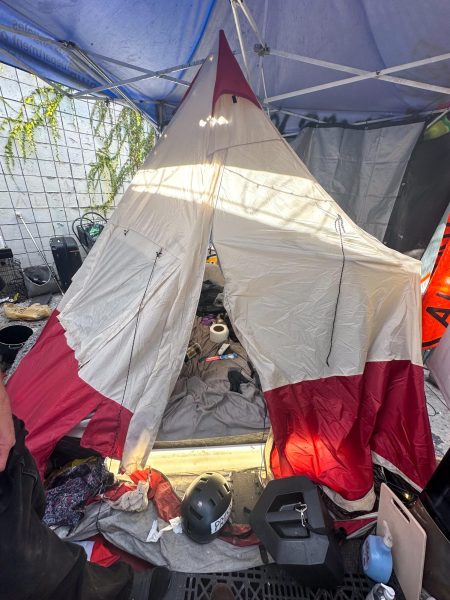
Finding camaraderie on the streets
Jesus Farias, 30, who grew up in Boyle Heights, said he was raised in a “drug environment” with heavy gang-violence and has been living on and off the streets since he was 19.
He said his mother, who was also unhoused, had substance abuse issues and passed away from a fentanyl overdose, after her drugs were laced.
Farias said despite the hardships of experiencing homelessness, he has a street family who he can reach out to for help.
This family consists of “homegirls” who are like his “aunties” and “homies” who are like his cousins or uncles.
He said his street aunties give him food or a sweater if he gets cold. If he had a street mom, he said, it would be a woman whose shoulder he can cry on.
He said he met most of his close street family members growing up, when he moved back and forth between Boyle Heights and Skid Row.
“You don’t bring anybody in a street family just like that.You learn to become family,” Farias said.
Life after prison poses challenges
Antonio Hernandez, 37, from Van Nuys, moved to a small encampment of tents and RVs on West First Street a few weeks ago and is waiting for Section 8 housing. He said he has been unhoused for almost two years.
Hernandez said it was hard to find a place to stay after being released from jail and that correctional facilities did not warn him that he would be ostracized by his family and peers.
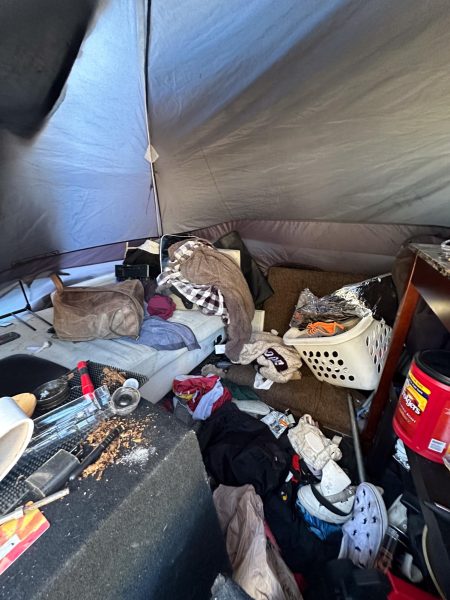
“When you come out and try to talk to your friends and family, they close the doors on you,” Hernandez said.
When people first arrive at unhoused shelters such as the L.A. Grand Hotel, they are treated like “royalty,” he said, but once individuals have been there for a few months staff become more strict, leading residents to be kicked out.
“They go from treating you like, ‘Oh, anything you need.’ They’ll take you to get your driver’s license, your passport…and then after that they’re like, ‘Oh no, we can’t do anything.’ It’s obvious that they’re trying to kick you out,” Hernandez said.
He said the shelters often don’t return residents’ belongings when they leave.
Hernandez said he is always thinking about when and where he will get his next meal.
Most of the time people approach the encampment to steal, according to him. However, sometimes if people stop by and see that the area is clean, they will donate food and money.
Hernandez feels that “everything would just fall into place” if he had housing and a job.
“It is what people say it is. When you’re homeless, it’s not a joke. It’s as depressing and sad as depicted,” Hernandez added. “You’re alone most of the time.”
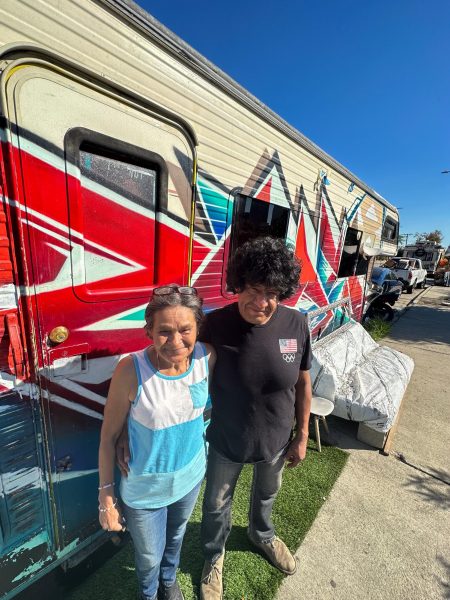
Organizations to contact if you or someone you know is unhoused:
- Los Angeles Homeless Services Authority: For adults who are in need of shelter, please contact (800) 548-6047.
- County of Los Angeles Public Health Department– Substance Abuse Service Hotline: Contact (844) 804-7500 for screening, resources and service referrals regarding substance use disorders.
- National Alliance on Mental Illness (NAMI): Contact (800) 950-6264 for information on their services.
- Los Angeles County Department of Mental Health: Contact their 24/7 hotline at (800) 854-7771 for referrals, crisis counseling and mental health screenings/assessments.
- Meet Each With Dignity (MEND), a non-profit organization, has a program called First Step, which provides “direct and indirect services” to individuals experiencing homelessness. According to their website, they distribute food, clothing and hygiene kits every Thursday from 9 to 11 a.m.. They are located at 10641 N. San Fernando Road. Pacoima, California. 91331. For more information, please contact them at (818) 897-2443 or (818) 896-0246.

